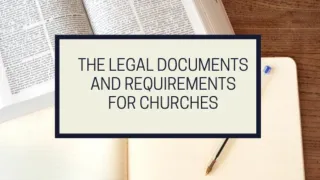How Can We Help
Serving Churches Serving Christ
Welcome to Hold Fast the Truth Ministries!
Hold Fast the Truth Ministries, Inc. was formally founded in 2002. Through the years they have published books, assisted churches in formulating church Constitutions and By Laws, provided leadership, ministry evaluations, consulting, training, and coaching.
Helpful Messages
What Do We Do With Kings
Biblical Salvation
Rebuild the Walls of Protection
LATEST Help
The Legal Documents and Requirements for Churches
This post emphasizes the importance of churches understanding and maintaining their legal documents, such as constitutions, bylaws, and financial records. It outlines key legal requirements, like IRS ... ...more
Church Helps
March 11, 2025•8 min read

Constitutions & By Laws
This post highlights the critical importance of a well-crafted Constitution and By-Laws for churches. It stresses the need for legal protection, cultural relevance, and doctrinal clarity. The post off... ...more
Church Helps
March 10, 2025•3 min read

People or Perfection?
Melissa shares her journey of recovering from perfectionism, highlighting how it impacted her family and ministry. She explores the difference between perfectionism and excellence, stressing the impor... ...more
Church Helps
March 07, 2025•10 min read

Transforming Lives Together
Phlipians 4:17 Not because i desire a gift; but I desire fruit that may abound to your account. We belive that gifts are a way we can all share in the fruit results of our investment in the Lord's work. We desire to share the work with everyone.
One-Time Donation
Support our ongoing ministries and outreach.
Provide sustained support for our mission.
Recurring Giving
Specific Causes
Church Rescues, Church Emergency Needs.
Legacy Giving
Options to leave a lasting impact for future generations.
Copyright © 2026. All rights reserved. Truth In Love Radio Network
Discover more about us at churchhelps.org





